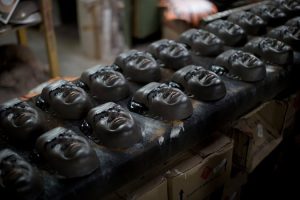Does Muniz’s work exploit the pickers and if so, can it still have an overall positive impact?
Preliminary answer: I think that Muniz’s work is exploitative to some extent because his interaction with them gives him fame and attention while leaving the pickers themselves to continue living in difficult situations. However, Muniz also legitimately improved the lives of the people he worked with by providing them with the proceeds of his work and by bringing attention to their struggles. The pickers who worked with him also seemed to enjoy the experience, although we should bear in mind that the documentary probably tries to promote this idea. Therefore, I would argue that his work had an overall positive impact even if its primary objective was to promote Muniz’s career and reputation.
How was the portrayal of the pickers significant and what ideas about them did it convey?
Preliminary answer: The pickers are portrayed as having a certain amount of pride in their work in many instances, and a lot of attention was devoted to the attempts of the pickers to organize and improve their situation. Their attempts to educate themselves by reading books that they find and starting a library are also emphasized. In addition to these themes, the documentary focused on the difficult conditions in which the pickers live and their attempts to overcome the challenges that they face. Overall, I think the coverage of the pickers was largely positive and designed to help people sympathize with them as well as to bring attention to their needs.


